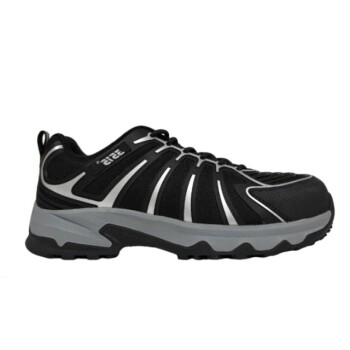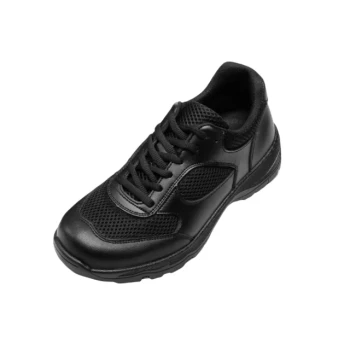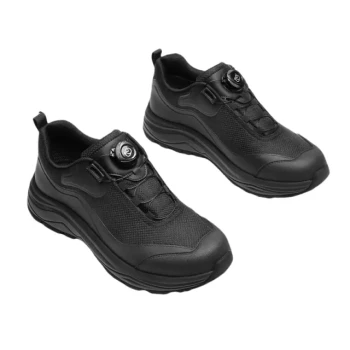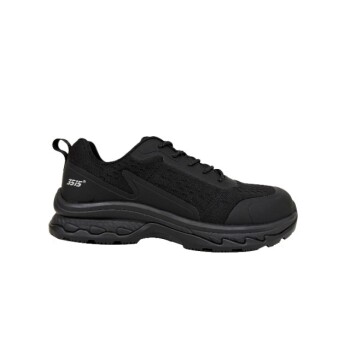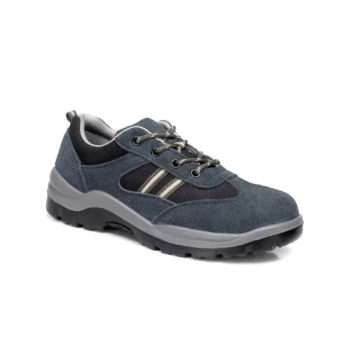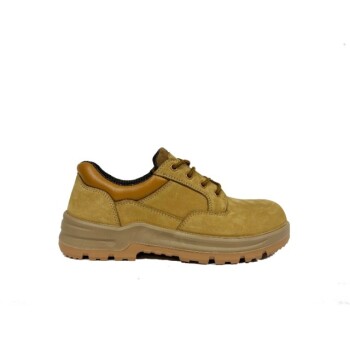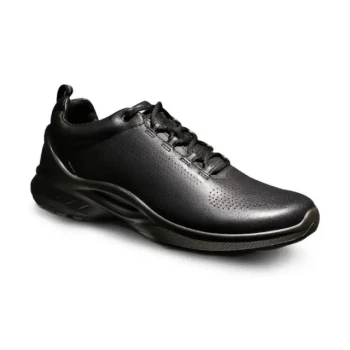The primary benefits of rubber work shoes are their exceptional liquid resistance, inherent flexibility, and lightweight design. This combination makes them an ideal choice for specific work environments where feet need to stay dry and comfortable during long hours of standing, walking, or bending.
Rubber work shoes excel in wet conditions and physically demanding roles. However, their main advantage—impermeability—is also their key drawback, as it can lead to overheating and is unsuitable for all work settings.
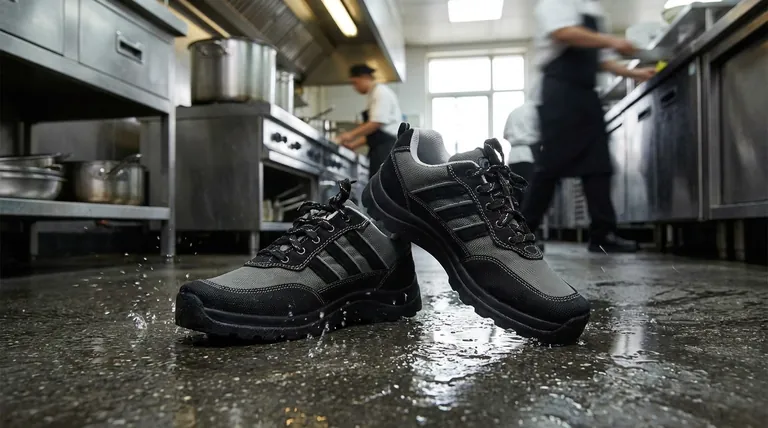
The Core Advantages of Rubber Work Shoes
Rubber's natural properties translate directly into functional benefits for occupational footwear. Understanding these advantages helps clarify when they are the superior choice.
Superior Liquid Resistance
Because rubber is a non-porous material, it provides a powerful barrier against water, oils, and other liquids. This makes it the go-to option for keeping feet dry and safe in wet or messy environments.
Unmatched Flexibility and Softness
Rubber is naturally pliable and soft, allowing the shoe to move with the foot. This is a critical feature for jobs that require frequent bending, kneeling, or squatting, as it prevents the material from digging into the foot and restricting movement.
Lightweight Design to Reduce Fatigue
Compared to many traditional work boot materials, rubber is significantly lighter. This reduction in weight lessens the strain on your legs and feet, which can help prevent chronic foot problems and reduce overall fatigue after a long shift.
When Rubber is the Optimal Choice
Certain job functions and environments are perfectly suited to the unique characteristics of rubber footwear.
Navigating Wet and Slippery Surfaces
For professions in commercial kitchens, food processing, industrial cleaning, or outdoor agriculture, rubber shoes provide essential protection from constant exposure to liquids.
Jobs Demanding All-Day Movement
The combination of being lightweight and flexible makes rubber shoes highly suitable for roles that involve prolonged standing and walking. This helps staff stay focused on their tasks without being distracted by foot pain or injury concerns.
Understanding the Trade-offs
No single material is perfect for every situation. The very properties that make rubber excellent in some scenarios create disadvantages in others.
The Overheating Problem
The same water resistance that keeps liquids out also traps heat and moisture in. Unlike breathable materials like mesh, rubber shoes can cause feet to overheat and sweat, especially in hot or humid climates.
The Professionalism Gap
Rubber work shoes have a distinctly informal and functional appearance. They are generally not appropriate for office environments or any role that requires a business-casual dress code.
Not a Complete Safety Solution
While excellent for liquid resistance, a standard rubber shoe may not include other critical safety features. For protection against impacts, you would need shoes with alloy or steel toes, which are often made from different primary materials.
Making the Right Choice for Your Work Environment
Selecting the proper footwear requires matching the material's strengths to your job's specific demands.
- If your primary focus is working in wet conditions: Rubber is your most reliable choice for keeping feet dry and protected from liquids.
- If your primary focus is all-day comfort and mobility: The lightweight and flexible nature of rubber is a major benefit, but you must weigh this against its lack of breathability.
- If your primary focus is working in a hot climate or an office setting: A more breathable material like mesh is a superior option.
Choosing your work shoe material wisely is a foundational step in ensuring your safety and comfort throughout the day.
Summary Table:
| Benefit | Key Feature | Ideal For |
|---|---|---|
| Liquid Resistance | Impermeable barrier against water & oils | Wet environments, food processing, cleaning |
| Flexibility & Comfort | Naturally pliable, moves with the foot | Jobs requiring bending, kneeling, squatting |
| Lightweight Design | Reduces leg strain and fatigue | Long shifts with prolonged standing/walking |
As a large-scale manufacturer, 3515 produces a comprehensive range of industrial footwear for distributors, brand owners, and bulk clients.
Are you looking for reliable, high-performance rubber work shoes for your team or product line? Our production capabilities encompass all types of safety shoes and boots, tailored to meet the specific demands of your industry. We can help you equip your workforce with footwear that ensures safety, comfort, and productivity.
Contact us today to discuss your requirements and discover how we can be your trusted manufacturing partner.
Visual Guide
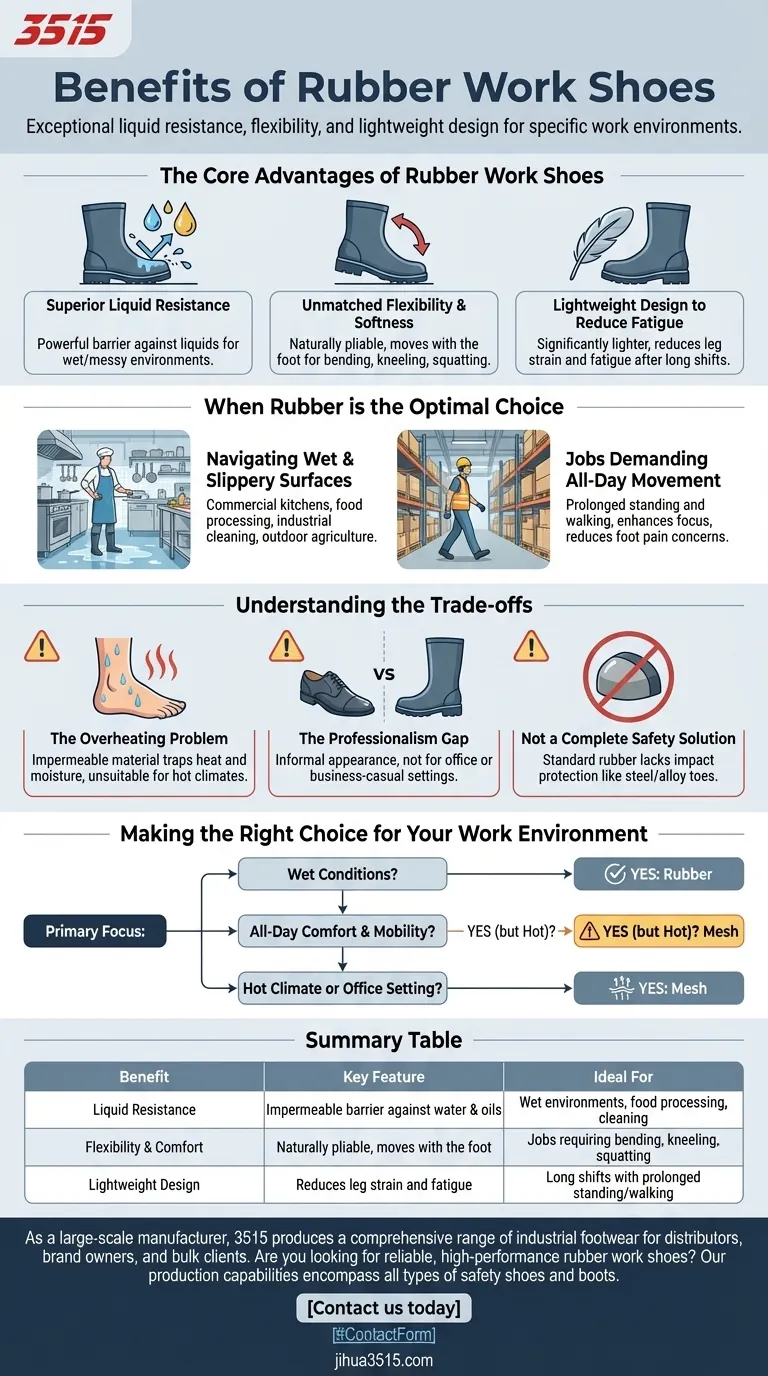
Related Products
- Durable Rubber-Soled Utility Shoes for Wholesale & Custom Brand Manufacturing
- Premium KPU Athletic Safety Shoes for Wholesale
- Wholesale Durable & Breathable Training Shoes for Custom Brands
- Durable Canvas Work Shoes with Rubber Lug Sole | Wholesale Manufacturer
- Wholesale Training Shoes with Dial Lacing System Custom OEM Manufacturing
People Also Ask
- Why might someone prefer leather soles over rubber soles? Discover the Elegance and Comfort
- What is the physical mechanism behind incorporating small rubber particles on compression socks for balance function?
- What makes hiker-style rubber outsoles suitable for work environments? Superior Traction and Safety for Demanding Jobs
- What are the main types of shoe soles? A Guide to Choosing the Right Material
- What is the function of an industrial internal mixer for high-slip rubber outsoles? Master the Foundation of Durability
- How do rubber soles affect a shoe's appearance? Defining Your Shoe's Style and Formality
- How do the thermoplastic characteristics of PVC benefit shoe sole manufacturing? Efficiency and Eco-Friendly Solutions
- Why is natural rubber considered durable for footwear? Superior Grip, Comfort & Longevity

